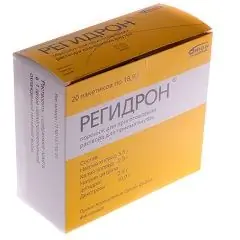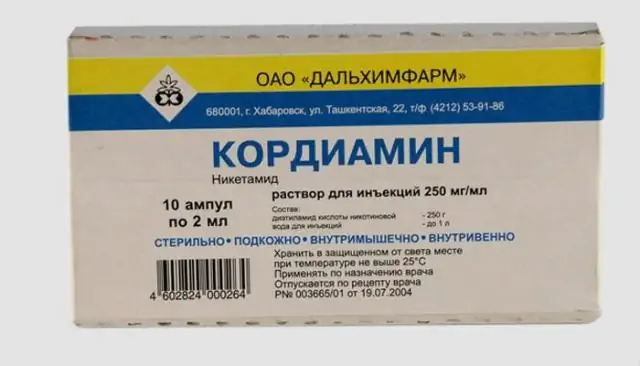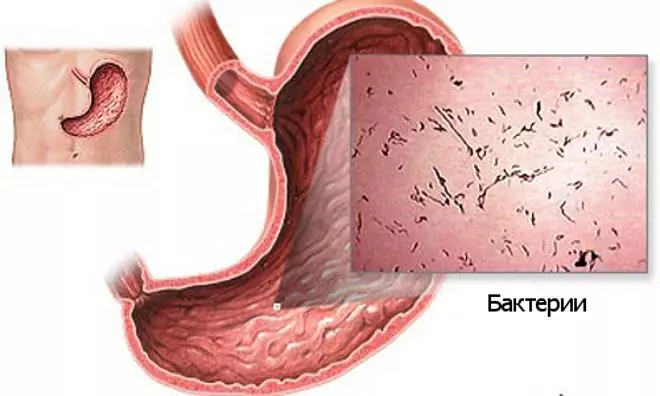- Author Rachel Wainwright wainwright@abchealthonline.com.
- Public 2023-12-15 07:39.
- Last modified 2025-11-02 20:14.
Regidron
Regidron: instructions for use and reviews
- 1. Release form and composition
- 2. Pharmacological properties
- 3. Indications for use
- 4. Contraindications
- 5. Method of application and dosage
- 6. Side effects
- 7. Overdose
- 8. Special instructions
- 9. Application during pregnancy and lactation
- 10. Use in childhood
- 11. In case of impaired renal function
- 12. Drug interactions
- 13. Analogs
- 14. Terms and conditions of storage
- 15. Terms of dispensing from pharmacies
- 16. Reviews
- 17. Price in pharmacies
Latin name: Rehydron
ATX code: A07CA
Active ingredient: dextrose (dextrose) + potassium chloride (potassium chloride) + sodium chloride (sodium chloride) + sodium citrate (sodium citrate)
Manufacturer: Orion Corporation (Finland)
Description and photo update: 2019-14-08
Prices in pharmacies: from 345 rubles.
Buy

Rehydron is a drug for enteral use with detoxification and rehydration effects.
Release form and composition
Dosage form - powder for preparation of a solution for oral administration: white crystalline mass, after dissolving in water - a transparent colorless liquid with a salty-sweet taste, odorless (in a laminated sachet made of aluminum foil, in a cardboard box 4 or 20 sachets).
Content of active substances of Rehydron in 1 sachet / 1000 ml of ready-made solution:
- Dextrose - 10 g / 55.5 mmol;
- Sodium chloride - 3.5 g / 59.9 mmol;
- Sodium citrate - 2.9 g / 11.2 mmol;
- Potassium chloride - 2.5 g / 33.5 mmol.
Pharmacological properties
Pharmacodynamics
Glucose in Rehydron promotes the absorption of salts and citrates and supports metabolic acidosis.
The osmolarity of the finished solution is 260 mosm / l. The solution medium is slightly alkaline (pH 8.2). Compared to standard solutions recommended by WHO for rehydration therapy, Regidron has a lower osmolarity. Also, in comparison with analogues in the composition of the drug, the sodium concentration is lower, and the potassium content is higher.
Hypoosmolar solutions are considered more effective. With a low sodium concentration, the risk of developing hypernatremia decreases, and with an increased level of potassium, its level is restored more quickly.
Pharmacokinetics
The pharmacokinetics of the electrolytes and glucose that make up the drug correspond to the pharmacokinetics of these substances in the body.
Indications for use
- Correction of acidosis, restoration of water and electrolyte balance in acute diarrhea (including cholera) or heat injury that caused a violation of water and electrolyte metabolism;
- Prevention of imbalance in water and electrolyte balance during heat and physical exertion associated with intense sweating;
- Oral rehydration therapy for acute diarrhea with mild to moderate dehydration.
Contraindications
- Unconsciousness;
- Functional disorders of the kidneys;
- Diabetes mellitus (non-insulin dependent and insulin dependent);
- Intestinal obstruction;
- Hypersensitivity to drug components.
Instructions for the use of Regidron: method and dosage
The ready-made Rehydron solution is intended for enteral use, for this purpose, the contents of 1 sachet of the drug should be dissolved in 1000 ml of freshly boiled chilled water.
Recommended dosage:
- Diarrhea: 50-100 ml of solution should be drunk every 3-5 minutes. When using a nasogastric tube, the procedure takes 3-5 hours. With a mild course of the disease, the daily dose should be at the rate of 40-50 ml per 1 kg of the patient's weight, with an average - 80-100 ml per 1 kg;
- Polyuria, heat cramps, thirst: 100-150 ml for 30 minutes (500-900 ml), the intake should be repeated every 40 minutes until the symptoms of the disease disappear completely;
- Supportive therapy: 80-100 ml per 1 kg of body weight per day during the entire period of diarrhea, until the water and electrolyte balance is completely restored.
Side effects
Allergic reactions may develop against the background of taking Rehydron.
Overdose
In the case of taking an excessively large amount of solution or when using an excessively concentrated solution, the likelihood of developing hypernatremia increases, the manifestations of which are drowsiness, weakness, neuromuscular agitation, confusion, coma, and respiratory arrest.
Patients with reduced renal function are at risk of developing metabolic alkalosis (neuromuscular agitation, tetanic seizures, decreased ventilation) and hyperkalemia.
In case of severe overdose with pronounced signs of metabolic alkalosis or hypernatremia, the drug should be discontinued. Further treatment is prescribed based on the results of laboratory tests.
special instructions
The patient's loss of more than 10% of body weight in severe dehydration (anuria) should be restored by the appointment of intravenous rehydration drugs, followed by the use of Rehydron.
Without confirmation by laboratory studies of the need for additional administration of electrolytes, the recommended dosing regimen should not be exceeded.
A high concentration of the solution can cause the development of hypernatremia.
In case of nausea and vomiting, Rehydron should preferably be taken in small, repeated refrigerated doses.
Do not add sugar to the solution.
You can feed the patient immediately after rehydration. When vomiting, Regidron is taken 10 minutes later in small sips, slowly.
With dehydration in patients with renal failure, diabetes mellitus and other chronic pathologies, careful monitoring of their condition is required during drug treatment, since dehydration causes a violation of the acid-base, electrolyte or carbohydrate balance.
With the appearance of loose bloody stools, an increase in body temperature of more than 39 ° C, the duration of diarrhea for more than 5 days, a sudden cessation of diarrhea and the appearance of severe pain, with cessation of urinary flow, the patient has slowed down speech, rapid fatigue, drowsiness or the patient's inability to answer questions, it is necessary seek medical advice.
According to the instructions, Rehydron does not affect the ability to drive vehicles and mechanisms.
Application during pregnancy and lactation
In the recommended doses, it is allowed to use Regidron during pregnancy and lactation.
Pediatric use
There are no age restrictions on the use of the drug, therefore, for the treatment of children, Rehydron can be used at any age.
With impaired renal function
In case of renal dysfunction, the drug is contraindicated.
Drug interactions
Since the solution has a slightly alkaline reaction, Rehydron can affect the action of those drugs in which absorption depends on the acid-base contents of the intestine.
Analogs
The analogues of Regidron are: Trigidron, Hydrovit, Hydrovit Forte, Citraglucosolan, Reosolan.
Terms and conditions of storage
Store at 15-25 ° C. Keep out of the reach of children.
The shelf life is 3 years.
Store the prepared solution of the drug at a temperature of 2-8 ° C for no more than 24 hours.
Terms of dispensing from pharmacies
Available without a prescription.
Reviews about Regidron
Almost all reviews about Regidron are positive. The most serious drawback is the specific taste of the finished solution, which can complicate the process of treating young children with Rehydron.
The price of Rehydron in pharmacies
The approximate price for Regidron is 420 rubles. for 20 sachets of powder for preparation of oral solution.
Regidron: prices in online pharmacies
|
Drug name Price Pharmacy |
|
Regidron Bio paired sachets (A + B) 6.4 g each powder for preparation of oral solution 5 pcs. 345 r Buy |
|
Rehydron powder for preparation of oral solution 18.9 g 20 pcs. 392 RUB Buy |
|
Regidron powder for prig solution for internal approx. pack. 18.9g 20 pcs. 437 r Buy |
|
Regidron BIO powder for prig solution for internal approx. sachet 6,4g 5 pcs. 440 RUB Buy |

Anna Kozlova Medical journalist About the author
Education: Rostov State Medical University, specialty "General Medicine".
Information about the drug is generalized, provided for informational purposes only and does not replace the official instructions. Self-medication is hazardous to health!






